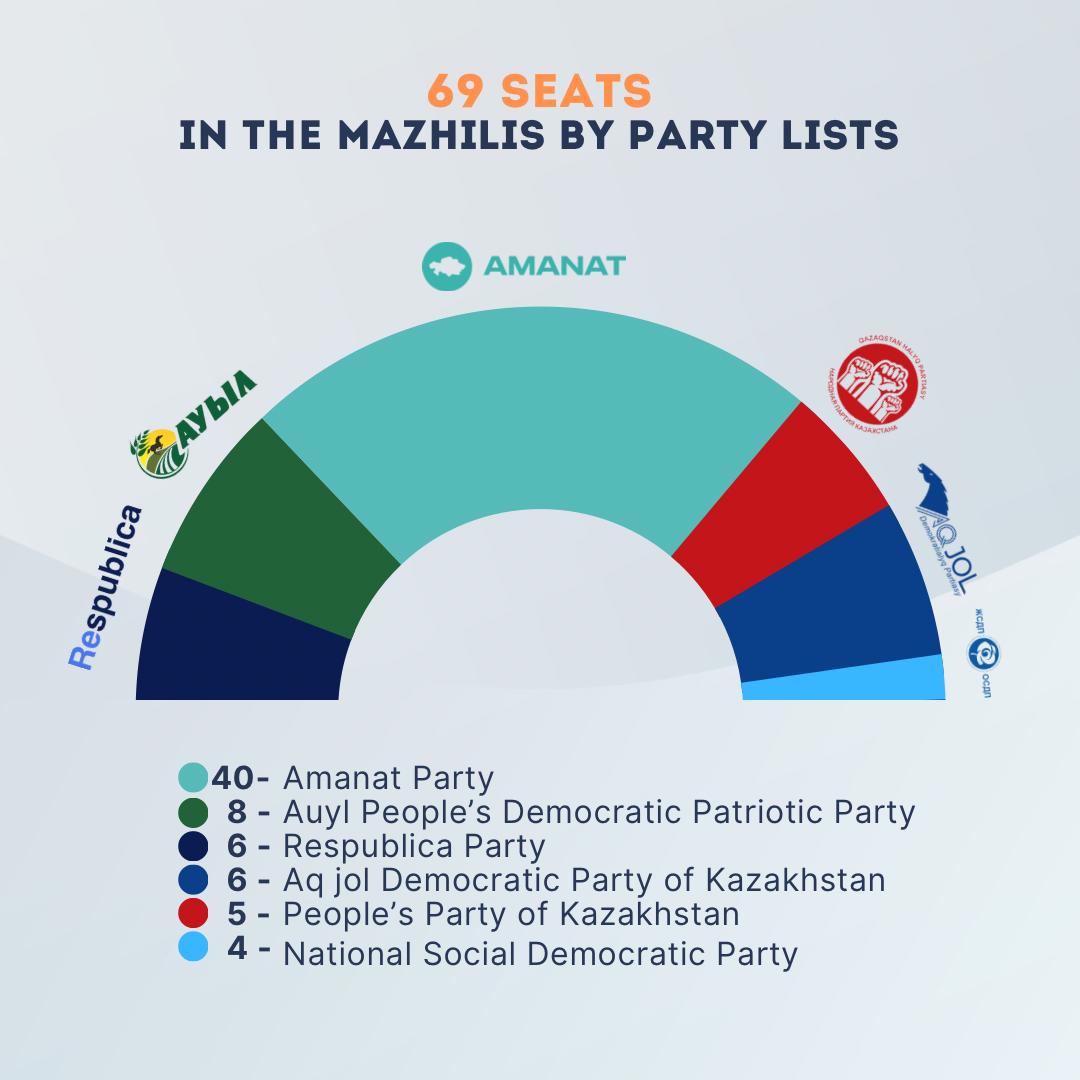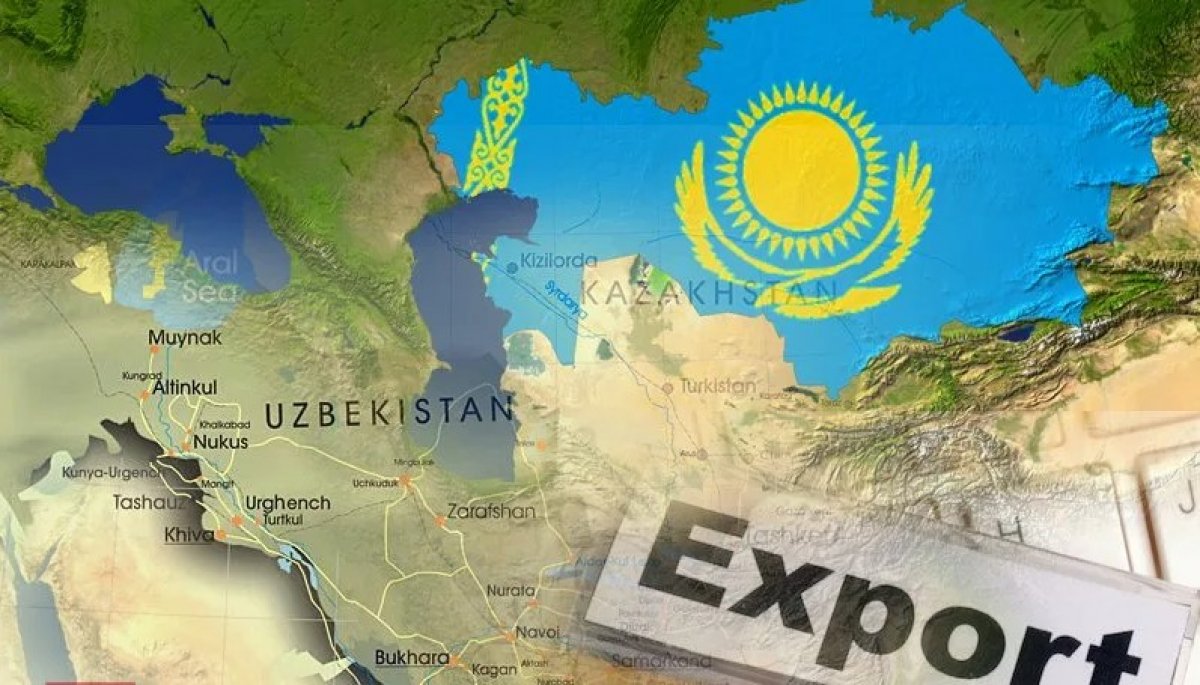ASTANA – 2023 in Kazakhstan marked significant political, economic, and social transformations.

Photo credit: Shutterstock.
This year witnessed a reset of political institutions, beginning with deputies at all levels and culminating with akims (mayors) of districts and regions.
On Jan. 14, elections for the Senate, the upper chamber of the Kazakh Parliament, took place, with 20 deputies selected from 17 regions and cities, including Astana, Almaty, and Shymkent, out of 55 candidates competing for seats.
Subsequent elections for the Mazhilis, the lower chamber of the Parliament, and maslikhats, local representative bodies, were conducted using a mixed proportional-majoritarian system. Under this system, 69 deputies out of a total of 98 are chosen from party lists of political parties, and 29 from single-mandate territorial districts.
On Nov. 5, Kazakhstan held its first-ever elections for mayors (akims) in various districts and cities of regional significance.

Following the Majilis elections, 69 seats out of a total of 98 were allocated among six political parties. Photo credit: The Astana Times.
The Constitutional Court was re-established and started its work on Jan. 1. It is meant to enhance the safeguarding of human rights in Kazakhstan, granting citizens a direct avenue to protect their rights and freedoms.
According to Elvira Azimova, chairwoman of the Constitutional Court, approximately 5,000 appeals have been received by the court since its inception.
“More than 27% of nearly 5,000 appeals have been accepted by the Constitutional Court, leading to specific decisions. These decisions include recommendations to the government and the Supreme Court for reviewing acts related to human rights in healthcare and the professional rights of judges, along with proposals for legislative initiatives. The remaining 73% of appeals will not be overlooked,” she said.
Foreign policy
This year, Kazakhstan assumed the chairmanship of the Shanghai Cooperation Organization (SCO) during the organization’s virtual summit in July. Almaty took on the role of the cultural and tourist capital of the SCO for the year.
The SCO region, constituting almost half of the global population and occupying around a quarter of the Earth’s landmass, showcased a combined gross domestic product exceeding $23 trillion.
The continuous expansion of SCO participants demonstrates the organization’s growing international authority and influence in the region and the world.
During its chairmanship, Kazakhstan prioritized economic cooperation within the SCO as one of its key priorities, aiming to expand trade and economic ties. According to the Kazakh Foreign Ministry, the trade turnover between Kazakhstan and SCO countries in 2022 reached $61 billion.
Another crucial aspect of Kazakhstan’s policy involves advocating for the strengthening of Central Asian countries’ positions. A significant event in this regard was the sixth summit of the Conference on Interaction and Confidence-Building Measures in Asia (CICA). The summit addressed key issues on food security, transportation connectivity development, and regional security.
Economic prosperity
Kazakhstan increased the export of finished products by more than 20%. Within this figure, the country’s exports of non-commodity goods accounted for one-third, totaling $12.1 billion.

Kazakhstan experienced an increase of over 20% in the export of finished products, with non-commodity goods accounting for one-third, reaching a total of $12.1 billion. Photo credit: today.kz.
Kazakhstan expanded its export markets to 125 countries, with major destinations including Russia, China, Uzbekistan, Türkiye, the Netherlands, the United Kingdom, and Japan.
This year commemorated the 30th anniversary of the tenge, Kazakhstan’s national currency. In 2016, it earned the top spot in the list of the world’s most beautiful currencies, according to the British publication The Telegraph.
On the 30th anniversary, the National Bank introduced the pilot project of the digital tenge at the 11th Financial Congress on Nov. 15 in Almaty. The platform’s architecture enables bank clients to use digital tenge by opening a digital account in the servicing bank’s mobile application.
Decisive measures
President Kassym-Jomart Tokayev signed the law on the return of illegally acquired assets to the state on July 12. The law provides a framework for the government to identify and repatriate assets that have been illegally acquired and taken out of the country. The funds seized from corrupt officials will be directed towards constructing 72 new schools.
The Education Infrastructure Support Fund has received 121.7 billion tenge ($264.7 million), supporting 72 projects totaling 106.7 billion tenge ($232.1 million). Among these, 94.1 billion tenge ($204.7 million) have been earmarked for the completion of 69 schools with 85,000 student places, and 12.6 billion tenge ($27.4 million) for the construction of three new facilities.
In December, the Kazakh government concluded negotiations with ArcelorMittal. The new investor for ArcelorMittal Temirtau is Andrey Lavrentyev, the chairman of the board of Allur, Kazakhstan’s major car manufacturer and dealer. The planned total investment over the next three years exceeds $3 billion, with $1.3 billion earmarked for the upcoming year.
Following the October mine fire that killed 46 workers, Tokayev instructed the government to terminate investment cooperation with ArcelorMittal Temirtau.
Social reforms for inclusive growth
The Social Code was launched on July 1. It addresses various issues related to social support, including from birth to adulthood, employment, labor safety, social insurance, assistance during challenging life situations, and support for senior citizens.

Introduced on July 1, the Social Code tackles a range of matters concerning social assistance, encompassing support from birth to adulthood, employment, workplace safety, social insurance, aid during challenging life circumstances. Photo credit: Kazakh Ministry of Labor and social Protection of Population.
The code also outlines a phased increase in pensions, with the basic pension expected to rise by an average of 51% by 2027.
To enhance social protection for motherhood and childhood, the government introduced measures such as extending the payment period for childcare to 1.5 years from Jan. 1.
As of Sept. 1, the pilot implementation of the Digital Family Card commenced, streamlining service delivery and facilitating coordination among different government agencies.
Kazakhstan achieved a significant demographic milestone on Nov. 14, with the population reaching the 20-million mark. On this day, five babies were born – three boys and two girls – becoming the jubilee citizens of the country. According to the Bureau of National Statistics, the country’s population has grown by 22.3% in the last 30 years.
The country also implemented widespread pet registration. After chipping, comprehensive information about the animal and its owner is recorded in the database, simplifying identification and aiding in the search for lost animals.
The article was originally published in Kazinform.
